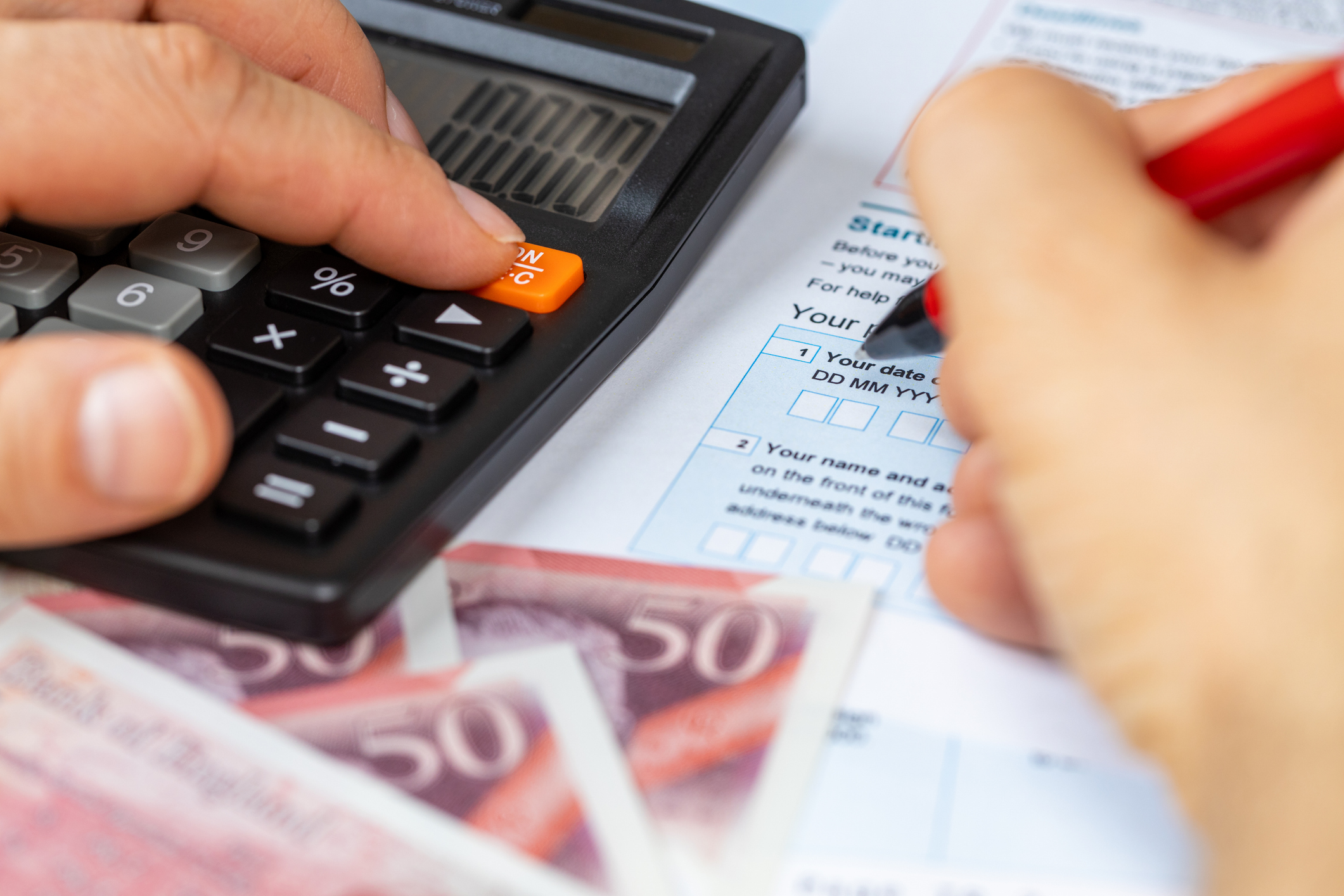Tax returns: make sure you declare child benefit
If you owe HMRC a repayment of child benefit cash, you need to act quickly, says Ruth Jackson-Kirby.

Get the latest financial news, insights and expert analysis from our award-winning MoneyWeek team, to help you understand what really matters when it comes to your finances.
You are now subscribed
Your newsletter sign-up was successful
Want to add more newsletters?

Twice daily
MoneyWeek
Get the latest financial news, insights and expert analysis from our award-winning MoneyWeek team, to help you understand what really matters when it comes to your finances.

Four times a week
Look After My Bills
Sign up to our free money-saving newsletter, filled with the latest news and expert advice to help you find the best tips and deals for managing your bills. Start saving today!
As the deadline for tax returns approaches, families should check whether they owe HMRC child benefit. In 2013 the High Income Child Benefit Charge was introduced. If you receive child benefit and you, or your partner, earns more than £50,000 a year, you have to repay some or all of the money. The taxpayer must “submit a tax return and notify HMRC they are liable for the charge,” says Harry Brennan in The Daily Telegraph. “Families face fines for failing to declare, even if they have never done their own taxes before.”
The High Income Child Benefit Charge is calculated on a sliding scale and equates to 1% of the child benefit for every £100 you earn over £50,000. If you earn £55,000 you have to repay half the child benefit you have received for that tax year. If you earn £60,000 or more, you need to pay HMRC the full amount. “Every year the high-income charge catches out thousands of families who are either unaware of it or who find themselves unwittingly earning more than they thought,” notes Miles Brignall in The Guardian.
If you earn just under £50,000 check your actual income carefully as you may find that the value of benefits you receive from your company, such as a company car or private medical insurance, push your earnings over £50,000. You can check this on your P60 and P11D forms.
MoneyWeek
Subscribe to MoneyWeek today and get your first six magazine issues absolutely FREE

Sign up to Money Morning
Don't miss the latest investment and personal finances news, market analysis, plus money-saving tips with our free twice-daily newsletter
Don't miss the latest investment and personal finances news, market analysis, plus money-saving tips with our free twice-daily newsletter
Anyone subject to the High Income Child Benefit Charge in 2019-2020 needs to fill in a self-assessment form and file it by 31 January. You also need to repay any child benefit owed by then. Failure to do either of these things could result in a fine.
“The £50,000 threshold hasn’t changed since 2013 [so] more and more families are being caught as incomes increase,” Sean McCann of NFU Mutual told The Daily Telegraph. “Many will be unaware of this extra tax and the penalties for failing to declare and pay on time.”
Many families choose to avoid the hassle of repaying child benefit and simply opt out of receiving it in the first place. But this can lead to complications. If you aren’t working because you are looking after children and you claim child benefit, you also receive National Insurance credits. You need 35 years of National Insurance credits to receive a full state pension, so opting out of child benefit could leave you with a diminished pension when you eventually retire. You can avoid this problem by filling in the form to claim child benefits – and trigger the National Insurance credits – then simply tick a box to say you do not want to receive payments.
In a year when many people’s incomes have dipped you should also consider opting back into receiving child benefit if your income has fallen below £60,000. You can restart payments by completing an online form at Gov.uk. Do this “as soon as possible – not only on tax reporting deadline day – and you can only backdate payment for three months, so it is even more vital to do this right away,” says David Byers in The Times.
Get the latest financial news, insights and expert analysis from our award-winning MoneyWeek team, to help you understand what really matters when it comes to your finances.

Ruth Jackson-Kirby is a freelance personal finance journalist with 17 years’ experience, writing about everything from savings accounts and credit cards to pensions, property and pet insurance.
-
 Should you buy an active ETF?
Should you buy an active ETF?ETFs are often mischaracterised as passive products, but they can be a convenient way to add active management to your portfolio
-
 Power up your pension before 5 April – easy ways to save before the tax year end
Power up your pension before 5 April – easy ways to save before the tax year endWith the end of the tax year looming, pension savers currently have a window to review and maximise what’s going into their retirement funds – we look at how
-
 Why it might be time to switch your pension strategy
Why it might be time to switch your pension strategyYour pension strategy may need tweaking – with many pension experts now arguing that 75 should be the pivotal age in your retirement planning.
-
 Rachel Reeves is rediscovering the Laffer curve
Rachel Reeves is rediscovering the Laffer curveOpinion If you keep raising taxes, at some point, you start to bring in less revenue. Rachel Reeves has shown the way, says Matthew Lynn
-
 ISA reforms will destroy the last relic of the Thatcher era
ISA reforms will destroy the last relic of the Thatcher eraOpinion With the ISA under attack, the Labour government has now started to destroy the last relic of the Thatcher era, returning the economy to the dysfunctional 1970s
-
 Investing in forestry: a tax-efficient way to grow your wealth
Investing in forestry: a tax-efficient way to grow your wealthRecord sums are pouring into forestry funds. It makes sense to join the rush, says David Prosser
-
 Two million taxpayers to be hit by £100k tax trap by 2026/27
Two million taxpayers to be hit by £100k tax trap by 2026/27Frozen thresholds mean more people than ever are set to pay an effective income tax rate of 60% as their earnings increase beyond £100,000. We look at why, as well as how you can avoid being caught in the trap.
-
 'Expect more policy U-turns from Keir Starmer'
'Expect more policy U-turns from Keir Starmer'Opinion Keir Starmer’s government quickly changes its mind as soon as it runs into any opposition. It isn't hard to work out where the next U-turns will come from
-
 13 tax changes in 2026 – which taxes are going up?
13 tax changes in 2026 – which taxes are going up?As 2026 gets underway, we look at what lies ahead in terms of changes to tax rates and allowances this year and how it will affect you.
-
 Why pension transfers are so tricky
Why pension transfers are so trickyInvestors could lose out when they do a pension transfer, as the process is fraught with risk and requires advice, says David Prosser